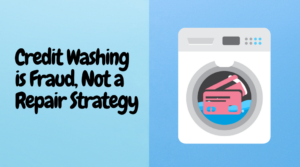To ensure a healthy financial future, it’s essential to monitor your credit report on a regular basis.
The Consumer Financial Protection Bureau (CFPB) recommends checking your credit file once every year but it may be beneficial to check it more frequently to stay on top of changes throughout the year.
How often should you check your credit reports?
Consumers should check their credit reports once a month and here are the reasons why:
-
- Free Credit Reports: It’s simple to get free credit reports from Experian, Transunion and Equifax once a week online at annualcreditreport.com.
- Detecting Errors: Credit reports are compiled by credit reporting agencies, and sometimes mistakes can occur. Credit report errors can range from simple misspellings to inaccurate information about your credit history. By checking your credit reports more than once a year, you increase the chances of catching any errors early and correcting them before they cause damage to your credit score.
- Spotting Fraud: Identity theft is a growing concern, and one of the ways thieves can use your identity is by opening new lines of credit in your name. By monitoring your credit reports more frequently, you can spot any unauthorized activity and take steps to protect yourself against fraud.
- Maintaining Good Credit: Regularly checking your credit reports can help you maintain a good credit score by identifying areas where you may need to improve your credit. For example, if you notice that you have a high balance on one of your credit cards, you can take steps to pay it down and improve your credit utilization rate.
- Preparing for Major Purchases: If you’re planning on making a major purchase, such as a home or car, you’ll want to make sure your credit score is in good shape. By checking your credit reports more frequently, you can take steps to improve your credit score before applying for a loan or credit.
- Keeping Track of Your Credit: Checking your credit reports more than once a year is a good way to keep track of your credit history over time. By monitoring changes in your credit score and credit history, you can identify trends and make adjustments to your credit habits as needed.
Get Free Credit Reports
Under the Fair and Accurate Credit Transactions Act, Americans can get a free credit report from each of the three major credit reporting agencies online once every week. This offer does not include your credit scores.
Go to annualcreditreport.com to get your 2024 weekly free credit reports from each of the three major credit reporting agencies:
It’s important to understand that credit reports and credit scores are not the same thing. While your credit report provides information about your borrowing history, such as accounts opened, payment history or collections, your credit score is a numerical expression of your creditworthiness and is not included with your free credit reports. However, you can check your credit scores at myFico.com for a fee.
Why it’s important to check your credit reports often
Credit report errors can have significant consequences in various areas of life. Inaccurate or incomplete information, such as missed payments or defaults, can affect one’s ability to secure a home mortgage, credit card, car loan, or other types of debt. Additionally, the accuracy and completeness of credit reports can impact background checks for employment and rental housing applications.
Ensuring that your credit report is accurate is key to securing favorable terms and opportunities.
Remember that borrowing money from lenders and consistent payment history both play crucial roles in shaping and altering your credit score over time.



















